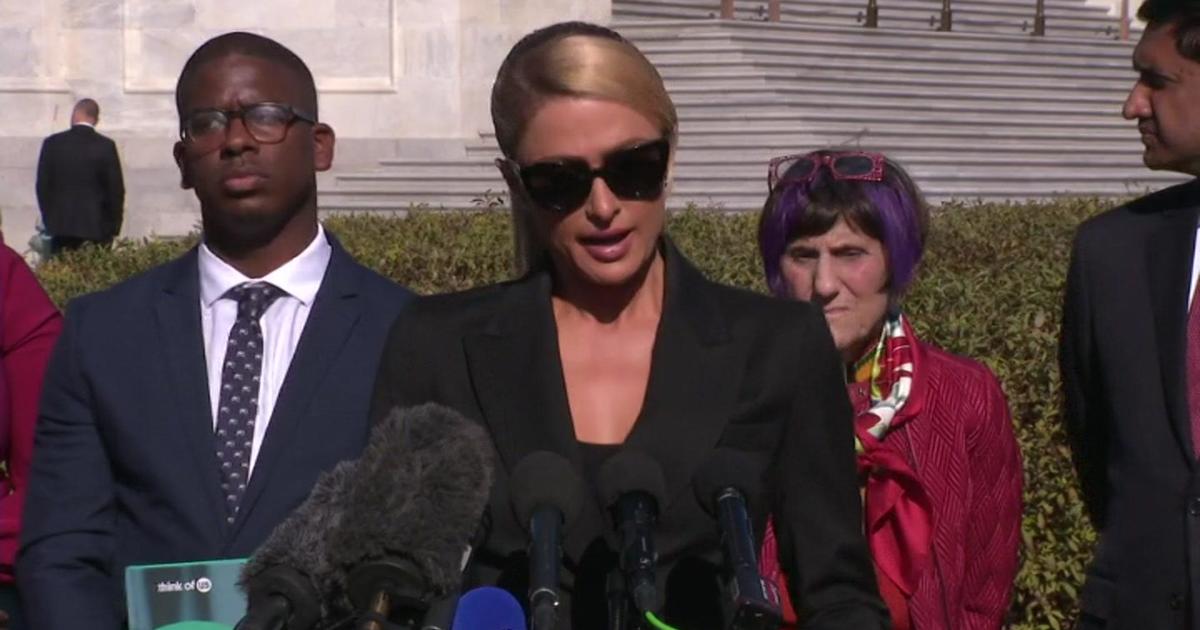Proposition 50 Aims To Fix Loophole That Allowed Raises For Suspended Senators
SACRAMENTO (CBS13) — Voters will get a chance to decide whether suspended lawmakers should be stripped of their pay on June 7, after legislators say a similar measure from 26 years ago tied their hands.
Proposition 50, also known as The California Suspension of Legislators Amendment, is the only statewide voter initiative on the June ballot. It was originally slated for the November 2014 ballot, but it was tied up in the California Assembly.
The initiative would amend the California Constitution, allowing lawmakers to strip the pay and benefits of legislators more than two years after three state Senators ended up in legal trouble. Because of a loophole, state Sens. Roderick Wright, Ron Calderon and Leland Yee were not only paid during their suspensions, they also ended up with raises.
CALIFORNIA STATE SENATORS LEGAL WOES
Over the span of three months in 2014, the state Senate was home to three separate indictments of senators. But those legal troubles started well before then.
In September of 2010, Wright was indicted by a Los Angeles County grand jury, accusing him of voter fraud and perjury. Prosecutors alleged Wright made it appear he moved into an Inglewood property he owned in 2008 so he could run in that state senate district. It would be more than three years before he was convicted in January 2014.
In June 2013, Calderon's capitol office was raided by the Federal Bureau of Investigation. CBS13 cameras captured agents carting away boxes filled with documents and hard drives, but feds were tight-lipped about the contents. In February 2014, Calderon and his brother Tom were indicted. Ron Calderon was charged with accepting $100,000 in bribes, lavish trips and no-show jobs for his children in exchange for pushing legislation to benefit a hospital, and participating in an film industry tax scheme that was actually an FBI sting.
Completing the legal trouble trifecta, longtime gun-control advocate and Secretary of State candidate Leland Yee was arrested as part of an international gun-running investigation. He would leave the secretary of state race the following day, but not the state senate.
After Yee's indictment, Darrell Steinberg, the president of the state senate at the time, had one simple message for all three of them—"Leave." While the senate voted to suspend Wright, Calderon and Yee that week, they continued to receive their pay.
HOW WERE SUSPENDED SENATORS STILL GETTING PAID?
Common sense would say if you're suspending someone after an indictment, or even a conviction, then they shouldn't be paid. While stripping the suspended lawmakers of their pay would send a strong message, the Legislative Counsel Bureau said it wouldn't be that easy.
The roots of the problem date back to 1990 when California voters passed Proposition 112. That measure, which was placed on the ballot by the state legislature, was meant to curb gifts and influence from lobbyists. The constitutional amendment also created the California Citizens Compensation Commission, which would set pay and benefits for legislators. The committee meets annually on June 30 -- before the end of California's fiscal year -- to decide changes to legislators' compensation. Its members are made up of the following:
- Three members of the public: "[One of whom has expertise in the area of compensation ... one of whom is a member of a nonprofit public interest organization; and one of whom is representative of the general population ..."
- "Two members who have experience in the business community"
- "Two members, each of whom is an officer or member of a labor organization."
- None of those members can be a current or former officer or employee of the state.
In more than two decades, there were no cases of an individual lawmaker being stripped of their salary and benefits during a legal investigation. Part of that is because the commission is bound by law to only decide on salary and benefits across the board for the legislature, not on an individual basis.
And without the commission making a move, the law says pay and benefits must remain intact under the amendment passed in 1990:
"Until a resolution establishing or adjusting the annual salary and the medical, dental, insurance, and other similar benefits for state officers takes effect, each state officer shall continue to receive the same annual salary and the medical, dental, insurance, and other similar benefits received previously." (Article III, Section 8, subdivision i)
The Legislative Counsel Bureau agreed with this finding, citing a lengthy legal battle 3,000 miles away from Sacramento.
NEW JERSEY COURT BATTLE SHAPES CALIFORNIA SENATE'S STANCE
On his own in 2009, New Jersey Assemblyman Joseph Vas was on an indictment streak that rivaled the troubled California Senate faced in 2014. According to court records, he was indicted four times in just over four months in 2009.
- March 11, 2009: The state grand jury returned an 11-count indictment that charged him with crimes committed while mayor of the city of Perth Amboy. Among the charges were conspiracy, misconduct, a pattern of official misconduct, theft, misapplication of government property, and tampering with public records.
- May 20, 2009: This time, a federal grand jury indicted Vas on 11 counts, charging him with defrauding the public, misapplication of government funds, making illegal campaign contributions, and related crimes.
- May 21, 2009: A day later, the state grand jury brought back a separate 19-count indictment with additional crimes dating back to his time as Perth Amboy mayor, including conspiracy, official misconduct, misapplication of entrusted property, financial facilitation of criminal activity, theft, and even more related crimes.
- July 21, 2009: Another federal indictment added more charges related to violations of campaign contributions.
After 44 people were indicted—including three New Jersey mayors and two New Jersey Assemblymen—Vas was suspended on July 29, 2009 and stripped of his pay and benefits by the Assembly speaker.
Vas appealed the decision and courts ruled the unilateral action taken by the speaker was outside the boundaries of the New Jersey Constitution. The court also stated if the speaker used the procedures in place, an Assembly committee could have served charges and it could recommend a punishment.
A POSSIBLE FIX HEADS TO THE BALLOT
To remedy this issue, Steinberg's office put forward SCA17, which would allow the same body that suspended a legislator to strip their salary. That measure was supposed to go on the November 2014 ballot, but a delay in the Assembly held it up until the June 2016 ballot.
The measure would require a two-thirds vote to suspend the salary and benefits.
The opposition to the initiative is state Sen. Joel Anderson, the only senator who vote against the suspensions of Wright, Calderon and Yee. Anderson is concerned the new rules could be used against legislators by suspending legislators to stifle the minority party.
Under current rules, a senator has not been suspended because they opposed the views of the majority party.
FOLLOW ON TWITTER: CBS Sacramento | Kyle Buis



